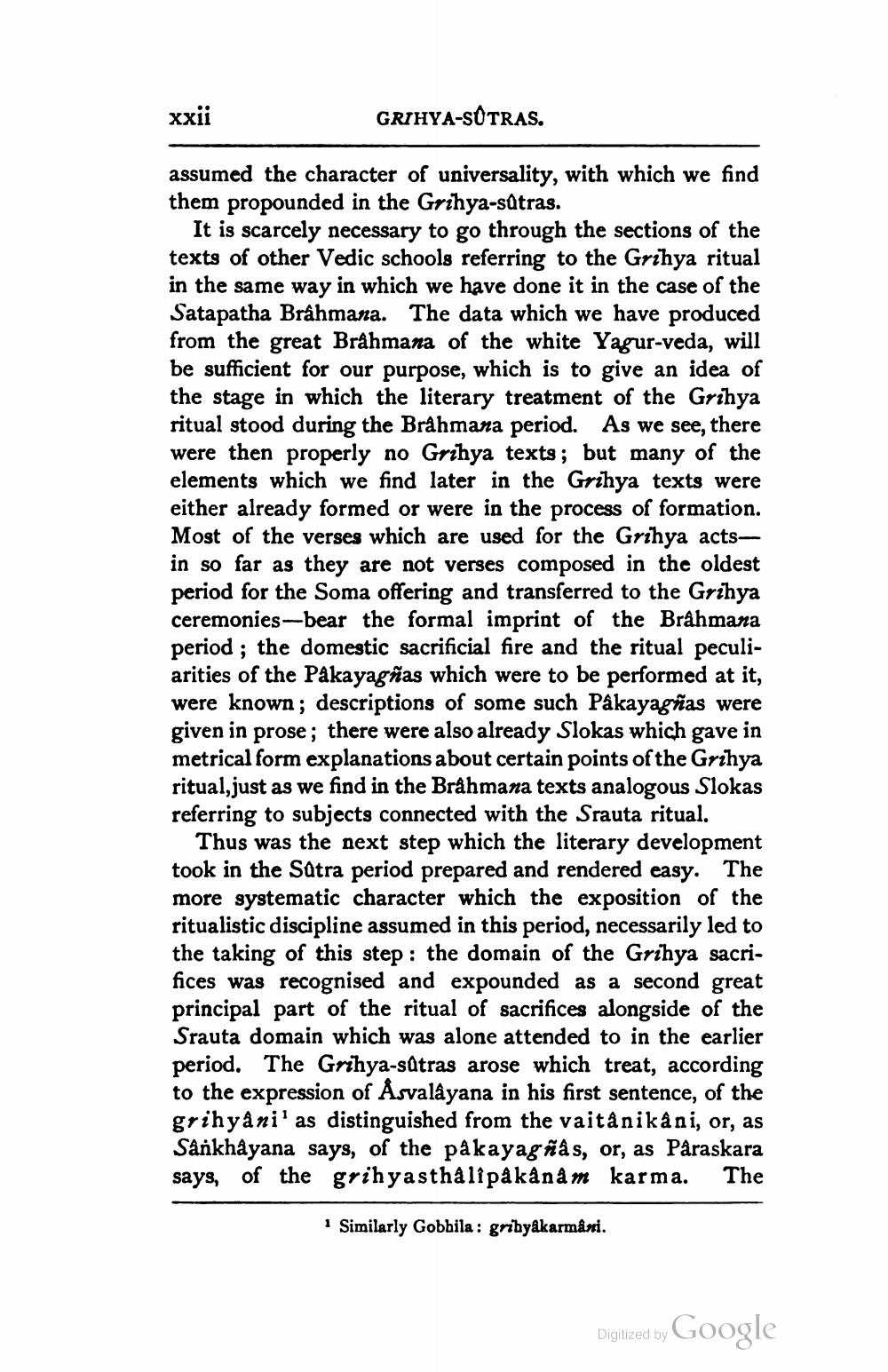________________
xxii
GRIHYA-SUTRAS.
assumed the character of universality, with which we find them propounded in the Grihya-sutras.
It is scarcely necessary to go through the sections of the texts of other Vedic schools referring to the Grihya ritual in the same way in which we have done it in the case of the Satapatha Brahmana. The data which we have produced from the great Brahmana of the white Yagur-veda, will be sufficient for our purpose, which is to give an idea of the stage in which the literary treatment of the Grihya ritual stood during the Brahmana period. As we see, there were then properly no Grihya texts; but many of the elements which we find later in the Grihya texts were either already formed or were in the process of formation. Most of the verses which are used for the Grihya actsin so far as they are not verses composed in the oldest period for the Soma offering and transferred to the Grihya ceremonies-bear the formal imprint of the Brahmana period; the domestic sacrificial fire and the ritual peculiarities of the Pâkayagñas which were to be performed at it, were known; descriptions of some such Pâkayagñas were given in prose; there were also already Slokas which gave in metrical form explanations about certain points of the Grihya ritual, just as we find in the Brahmana texts analogous Slokas referring to subjects connected with the Srauta ritual.
Thus was the next step which the literary development took in the Sutra period prepared and rendered easy. The more systematic character which the exposition of the ritualistic discipline assumed in this period, necessarily led to the taking of this step: the domain of the Grihya sacrifices was recognised and expounded as a second great principal part of the ritual of sacrifices alongside of the Srauta domain which was alone attended to in the earlier period. The Grihya-sûtras arose which treat, according to the expression of Asvalâyana in his first sentence, of the grihyani' as distinguished from the vaitânikâni, or, as Sankhayana says, of the påkayagñâs, or, as Pâraskara says, of the grihyasthalipâkânâm karma. The
1 Similarly Gobhila: gribyâkarmâni.
Digitized by Google




